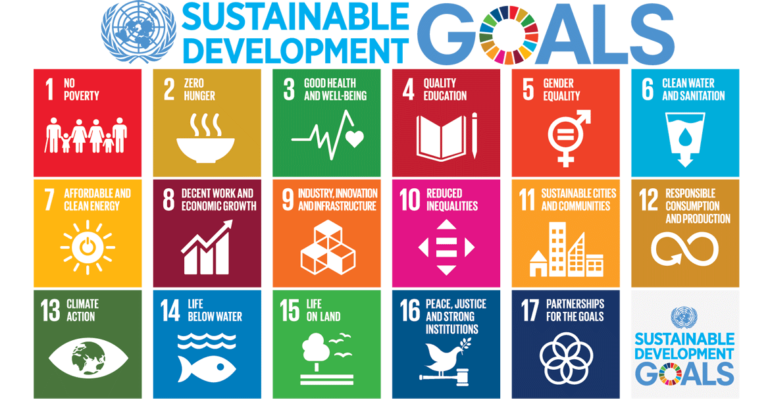International relations serve as the foundation for global cooperation, facilitating collaboration among nations and addressing global challenges that transcend borders. In an increasingly interconnected world, the role of international relations in fostering cooperation has become indispensable. In this article, we will explore the significance of international relations in promoting global cooperation and examine how it facilitates collective action to tackle pressing global issues.
Understanding International Relations
International relations is the study of interactions, cooperation, and conflicts among nations and other actors on the global stage. It encompasses diplomatic relations, trade agreements, security cooperation, and efforts to address global challenges collectively.
The Importance of Cooperation in a Globalized World
In a globalized world, cooperation is vital for addressing shared challenges and harnessing collective opportunities. Global issues such as climate change, terrorism, pandemics, and economic interdependencies require collaborative efforts beyond the capabilities of individual nations. International relations provide the framework for fostering and facilitating such cooperation.
International Institutions and Organizations
International organizations play a crucial role in promoting global cooperation. Entities like the United Nations (UN), World Bank, International Monetary Fund (IMF), and World Health Organization (WHO) serve as platforms for international cooperation, coordination, and the development of shared policies and initiatives.
Diplomacy and Negotiation as Tools for Cooperation
Global Diplomacy and negotiation are essential tools in international relations to foster cooperation. Diplomats engage in dialogue, negotiations, and consensus-building to bridge differences, find common ground, and foster collaborative solutions. Skillful diplomacy helps build trust, resolve conflicts, and strengthen relationships among nations.
Addressing Global Challenges through Multilateral Cooperation
International relations facilitate multilateral cooperation to address global challenges. Issues like climate change, poverty, terrorism, and nuclear disarmament require collective action and coordination among nations. Multilateral frameworks, such as the Paris Agreement and the Sustainable Development Goals, provide avenues for collaboration and problem-solving.
Conflict Resolution and Peacebuilding
International relations contribute to conflict resolution and peacebuilding efforts. Diplomatic negotiations, peace treaties, and peacekeeping missions help prevent and resolve conflicts, facilitating stability and peaceful coexistence. International organizations, regional bodies, and diplomatic initiatives foster dialogue and reconciliation among nations.
Economic Cooperation and Development
International relations foster economic cooperation and development. Trade agreements, economic partnerships, and foreign direct investment promote global economic integration and growth. International financial institutions facilitate economic cooperation, provide financial aid, and support development projects in countries around the world.
Environmental Cooperation and Sustainability
Cooperation in international relations is crucial for addressing environmental challenges and promoting sustainability. Collaborative efforts are needed to combat climate change, protect biodiversity, manage natural resources, and ensure sustainable development. International agreements like the Paris Agreement encourage nations to work together towards a greener future.
Humanitarian Cooperation and Crisis Response
International relations play a vital role in humanitarian cooperation and crisis response. When natural disasters, conflicts, or humanitarian crises occur, international organizations and nations collaborate to provide humanitarian assistance, deliver aid, and alleviate suffering. Cooperative efforts ensure a more effective and coordinated response to crises.
Cultural and Educational Exchanges
Cultural and educational exchanges foster cooperation and mutual understanding among nations. International relations facilitate opportunities for people-to-people interactions, student exchanges, and cultural programs, promoting cross-cultural learning, tolerance, and appreciation of diverse perspectives.
Enhancing Security Through Cooperation
International cooperation is essential for enhancing global security. Collaboration in intelligence sharing, counterterrorism efforts, nonproliferation of weapons of mass destruction, and peacekeeping operations strengthens collective security and mitigates threats to peace and stability.
Technological Advancements and Innovation
Technological advancements and innovation are driving forces in global cooperation. International collaboration in research and development, knowledge sharing, and technology transfer contributes to scientific progress, economic growth, and addressing global challenges such as cybersecurity, artificial intelligence, and sustainable technologies.
The Role of International Law
International law serves as a framework for cooperation and governing relations among nations. Treaties, conventions, and legal norms provide rules and principles that guide interactions, protect human rights, regulate trade, and promote peaceful coexistence. Compliance with international law fosters trust and ensures a level playing field for cooperation.
Challenges to Global Cooperation
Global cooperation faces challenges such as conflicting national interests, geopolitical rivalries, ideological differences, and resource constraints. Overcoming these challenges requires sustained dialogue, trust-building, and a commitment to common goals. The complexities of international relations demand continuous efforts to bridge divides and foster cooperative relationships.
International relations play a vital role in fostering global cooperation, providing a platform for nations to address shared challenges, pursue common objectives, and build a more interconnected and prosperous world. Through diplomatic negotiations, multilateral frameworks, and collaborative efforts, international relations facilitate collective action on issues ranging from environmental sustainability and economic development to peace and security. Embracing cooperation in international relations is essential for addressing the complex challenges and seizing the opportunities of our globalized world. Conflicts are an inherent part of human interactions, and their resolution is a key objective of international relations. International relations, as a field of study and practice, plays a crucial role in understanding, managing, and ultimately resolving conflicts among nations. In this article, we will dissect the role of international relations in resolving conflicts, exploring its mechanisms, approaches, and the significance of diplomacy in achieving peaceful outcomes. Conflicts in international relations encompass a wide range of issues, from territorial disputes and ideological differences to resource allocation and power struggles. International relations provide the framework for analyzing and addressing conflicts, taking into account historical, political, economic, and social factors that contribute to their emergence. Conflict analysis is a critical component of international relations in conflict resolution. It involves understanding the root causes, dynamics, and parties involved in a conflict. Through rigorous analysis, policymakers and diplomats gain insights into the complexities of conflicts and devise strategies to address them effectively.









 English (US) ·
English (US) ·